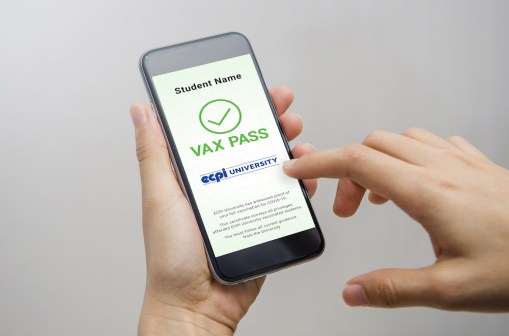Nine universities unite on blockchain credentialing project

A handful of top universities have joined forces to change the way educational institutions issue and manage academic credentials by using blockchain technology, MIT announced Tuesday.
While technology has helped transform education to be more accessible and personalized for learners, the way that credentials are distributed, shared and verified has remained largely unchanged, according to the university.
“Currently, those who successfully complete a degree from an institution must go back to that institution — sometimes by mail or even in person — each time there is a need to verify the academic credentials earned,” Sanjay Sarma, MIT vice president for open learning, said in a press release.
In response to this challenge, nine universities from around the world have collaborated to create a trusted and shared infrastructure standard for issuing, storing, displaying, and verifying academic credentials.
The institutions partnering on this effort include the University of California at Berkeley, University of California at Irvine, Harvard University Division of Continuing Education, MIT, Delft University of Technology in the Netherlands, Hasso Plattner Institute at the University of Potsdam in Germany, Tecnologico de Monterrey in Mexico, Technical University of Munich in Germany, and the University of Toronto in Canada.
The universities plan to develop a free service through which students can store and share academic credentials from various sources. The service will rely on blockchain, the distributed-ledger technology behind bitcoin, for strong cryptography to prevent tampering and fraud. The universities say the technology will also make it easier to share credentials, thereby creating a global infrastructure anchoring academic achievements.
“Blockchain has been a significant technology… to certify and verify transactions,” Gary Matkin, dean of Continuing Education at the University of California in Irvine, told EdScoop.
The project consolidates efforts started by several of the partnering institutions, including MIT’s 2017 pilot program that gave graduating students the option to receive their diplomas through an app called Blockcerts Wallet, which is secured using blockchain technology.
According to a recent report from the edtech company Ellucian, digital degrees and credentials are already gaining trust. Fifty-two percent of recruiters and 58 percent of students said they trust digital credentials.
Hans Pongratz, senior vice president for information technology systems and services at the Technical University of Munich said in a press release that the time for embracing this technology is now.
“We are well-positioned in academia to use cutting-edge technology to empower learners to advance their careers and education with credentials in the palms of their hands,” Pongratz said.





